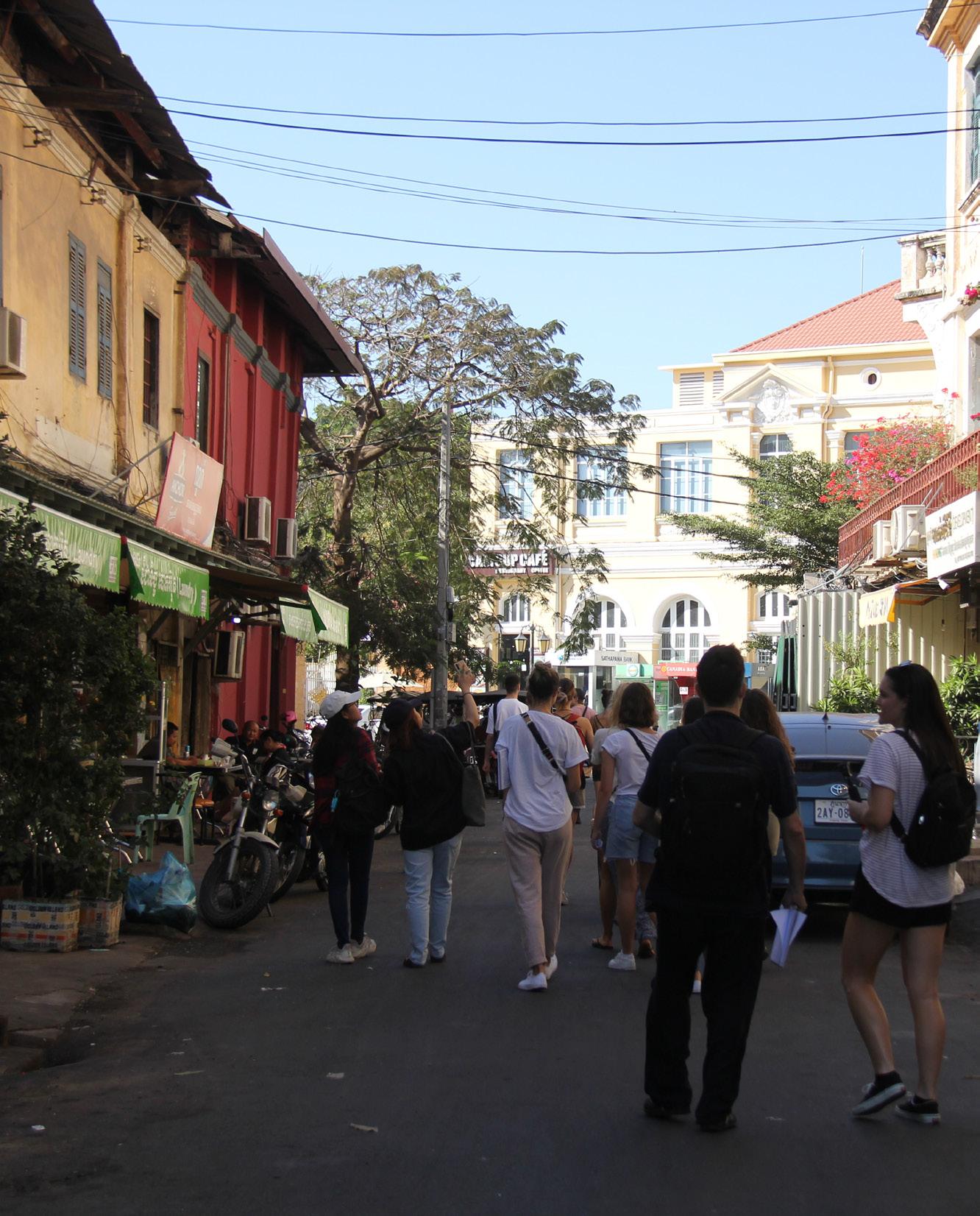
1 minute read
learn about the street, in the street
Experiential learning is core to the program, occurring through daily observational tasks based directly in urban streets. Public street space acts as a laboratory for social investigation (Hubbard & Lyon, 2019), drawing on Lefebvre’s (2004) ideas of the street as an inherently social production, brimming with complexities and contradictions.
Field-based pedagogies, when compared to ‘pure’ classroom learning have been shown to increase not only motivation but skills in critical inquiry, knowledge building and cooperative learning (Nugent et al., 2008). When positioned early in a student’s career, field experiences can be transformative, leading to future career paths (Hutson, Cooper, & Talbert, 2011).
Advertisement
Lefebvre, H. (2004). Rhythmanalysis: Space, time and everyday life. A&C Black.
Hubbard, P., & Lyon, D. (2018). Introduction: Street life–the shifting sociologies of the street. The Sociological Review, 66(5), 937-951.
Hutson, T., Cooper, S., & Talbert, T. (2011). Describing connections between science content and future careers: Implementing Texas curriculum for rural atrisk high school students using purposefully-designed field trips. Rural Educator, 33, 37-47.
Nugent, G., Kunz, G., Levy, R., Harwood, D., Carlson, D., (2008), ‘The Impact of a Field-Based, Inquiry-Focused Model of Instruction on Preservice Teachers’ Science Learning and Attitudes’, Electronic Journal for Research in Science & Mathematics Education (EJRSME), Vol 20, No. 2, 2.










